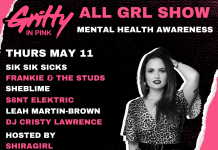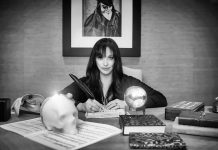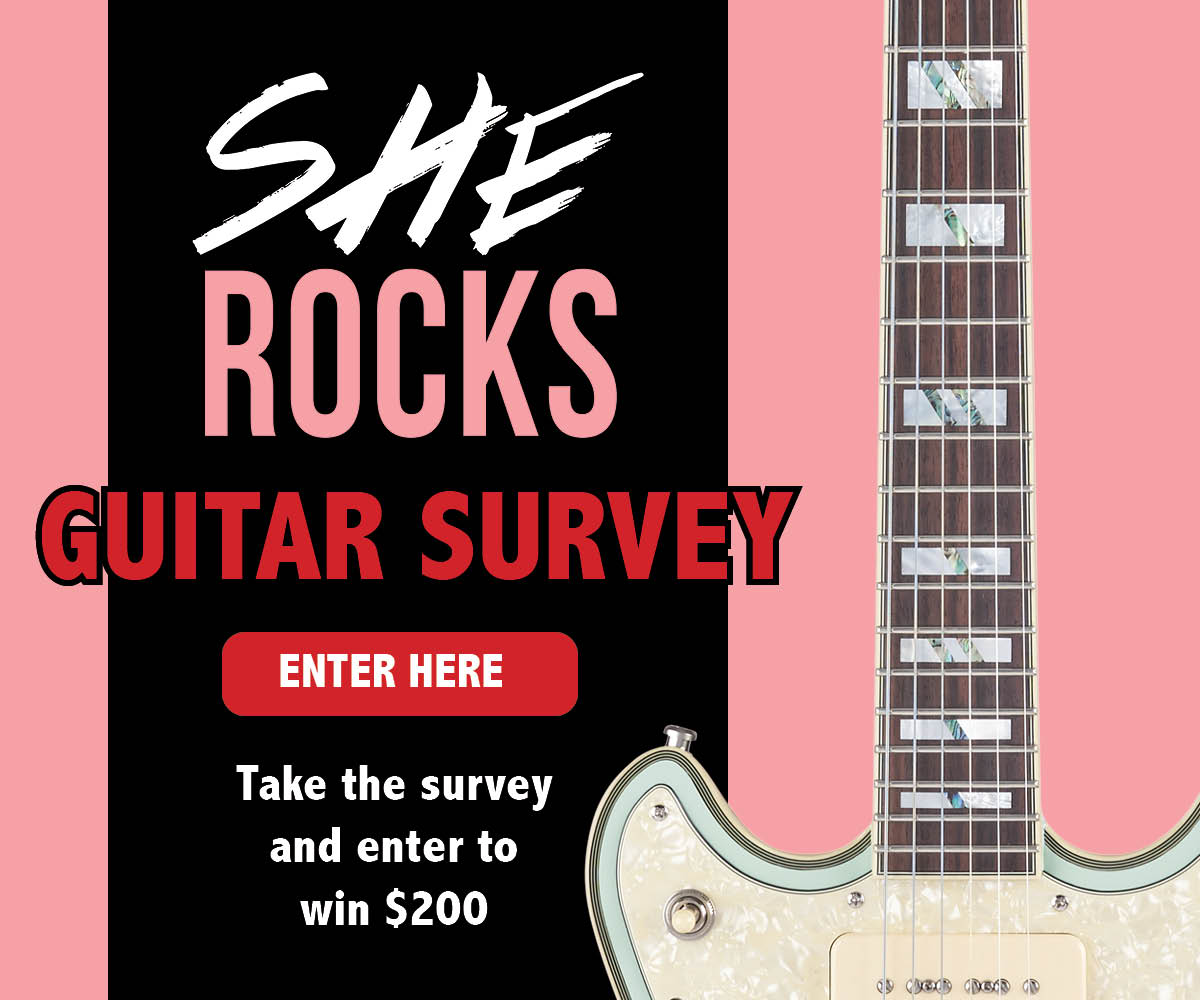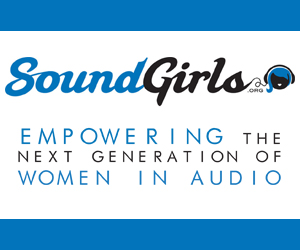By Brian Caples
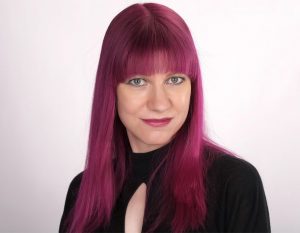 Lyndsey Parker is no stranger to the worlds of music and pop culture – she’s written about both topics nonstop since the 1990’s. As the Music Editor at Yahoo Entertainment, Lyndsey lends her expertise in these areas to cover some of the most important moments in modern music. If it made a splash in the public lexicon, chances are Lyndsey has written about it.
Lyndsey Parker is no stranger to the worlds of music and pop culture – she’s written about both topics nonstop since the 1990’s. As the Music Editor at Yahoo Entertainment, Lyndsey lends her expertise in these areas to cover some of the most important moments in modern music. If it made a splash in the public lexicon, chances are Lyndsey has written about it.
Lyndsey takes her love of music and pop culture one step further with her daily SiriusXM show, Volume West. Here, Lyndsey and a rotating cast of guests discuss everything music related that you need to know for the day. Plus, it’s not uncommon for some big names to show up; regular guests include Davey Havok (AFI), Chad Smith (Red Hot Chili Peppers), and Margaret Cho.
Recently, Lyndsey was announced as a co-host for the 2020 She Rocks Awards, alongside two-time GRAMMY®-nominated saxophonist/vocalist Mindi Abair. Lyndsey is no stranger to this job, however, as she was also a co-host of this year’s awards.
We spoke to Lyndsey about co-hosting the She Rocks Awards for the second year in a row, how she prepares for each episode of Volume West, and her advice for women in the music industry.
Find out more information on Lyndsey at www.lyndsanity.com.
WiMN: Let’s start off by going back to your childhood. How prominent was music in your life growing up? Who were the artists that made you want to pursue a career in music?
LP: MTV was really what changed my life, and I mean that in the literal sense. For me, TV and music were always kind of connected, because one of my TV memories was seeing Monkees reruns and then asking my parents for the Monkees’ greatest-hits album, which was the first album I ever owned. But once my cable company finally got MTV, it was all over. After that, I only left my room to go to school, shower, and use the bathroom. Even all my meals were eaten in front of MTV. It opened up a whole new exotic world to me.
I was generally obsessed with all new wave that came from this magical place called the U.K., where I assumed all the boys wore frilly pirate blouses, lipstick, and really cool haircuts 24/7. I was very attracted to the androgyny of it all, the idea that in the music world, men didn’t have to be hyper-masculine – that they could wear makeup like Boy George or express their feelings like Robert Smith or Morrissey. And of course, I gravitated to the absolutely fabulous and fierce women of that era, who also played with the idea of being a strong woman meant. I wanted to be Madonna, Annie Lennox, Siouxsie Sioux, Chrissie Hynde, Debbie Harry, the Go-Go’s, Terri Nunn, or the women in Human League or Strawberry Switchblade – or Martha Quinn, who had my dream job – and I still do.
But I would say the real night that changed my life was when I somehow scored backstage passes at a Cure concert as a teen and ended up hanging out with the band for about an hour. This is not a salacious backstage story. We just chatted, and even though I was young, they treated me with respect and acted like I actually belonged there. I asked them a ton of questions about their music and they answered them all. I could maybe consider that my first interview! I actually felt cool, like I was in some inner circle, and after that, I knew I wanted to work in music in some way. I wanted a reason to be backstage and be part of the action; I didn’t want to be just a fan or hanger-on. In my school yearbook not long after this, I said I wanted to “go into either music journalism or radio” after graduation. I eventually did both.
It took a while though. Even though I’d always excelled in English in school and had done writing all my life (mostly short stories, which were pretty good, and poems, which in retrospect were laughable goth teen-angst rants), and had been a DJ on my college radio station, I hadn’t really figured out how to make music journalism a career. The fanzine boom of the ‘90s opened up that world to me. I loved the whole D.I.Y. aesthetic and how in that culture it was OK to express your personality and fandom. I started my own zine with a Brady Bunch-inspired name, Porkchops & Applesauce. The first interview I ever did for it, amusingly, was Eve’s Plum. That’s a pretty cool thing to say, since Colleen Fitzpatrick of Eve’s Plum later went on to have great success as a music/TV executive. It’s cool to see where we both ended up.
WiMN: You’ve worn countless hats throughout your career, including author, journalist, radio show host, and actress. However, if there’s one place our readers are certain to recognize you from, it’s your stellar job as co-host of this year’s She Rocks Awards. As you prepare to co-host again in 2020, how are you looking to improve from this year’s amazing job?
LP: I am less nervous to do it this year, although I am just as excited. Sometimes I get impostor syndrome – we all do! – and I recall last year thinking, “Really? They want ME to do this?” To even be in a group photo with all those amazing women onstage, I felt like surely there must be some mistake. Surely it should be Martha Quinn up her on this stage, not me, right? Well, I’ve been asked back, so I guess it wasn’t a mistake! So I’m just going to try to squelch any inner doubting voices and focus on running another great show. With the lineup this year, having a great show shouldn’t be too hard.
WiMN: Your daily SiriusXM show Volume West is a delightful dive into all things music, from concert reviews to artist interviews and everything in between. Can you briefly describe what goes into making sure an episode runs smoothly?
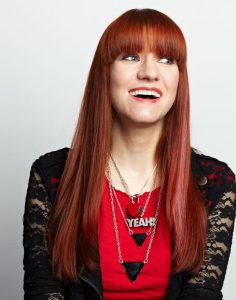 LP: I am a chronic over-preparer, because dead air is my greatest fear. It’s talk radio, so there is a performative aspect to it – which is fun as the closest I will ever feel to being a rock star myself – and I never want there to be a boring moment or awkward silence. So, I go into each live show with pages of notes – big music news stories of the day, any important music anniversaries taking place that day, questions for in-studio guests, points I want to make sure I make. And then we end up going off on some crazy tangent (or down what my producer lovingly calls a “rabbit hole”) anyway.
LP: I am a chronic over-preparer, because dead air is my greatest fear. It’s talk radio, so there is a performative aspect to it – which is fun as the closest I will ever feel to being a rock star myself – and I never want there to be a boring moment or awkward silence. So, I go into each live show with pages of notes – big music news stories of the day, any important music anniversaries taking place that day, questions for in-studio guests, points I want to make sure I make. And then we end up going off on some crazy tangent (or down what my producer lovingly calls a “rabbit hole”) anyway.
I have what I lovingly call my “harem” of rotating co-hosts with huge personalities and knowledge – Davey Havok, Michael Des Barres, Matt Pinfield, Slim Jim Phantom, Margaret Cho, Chad Smith – so this “rabbit-holing” happens quite often. And when it does, it actually makes for the best moments. That’s the magic of live radio. So my best advice to any live radio host is make sure you’re prepared, but be completely willing and open to going off-script and see what happens.
WiMN: Music and reality TV both seem to be your main areas of expertise, as is evident from your column Reality Rocks and podcast “The Day After.” Why do you feel shows that combine these two topics have become a cultural phenomenon?
Shows like American Idol (which is what Reality Rocks was launched to cover) and The Voice may not be the huge needle-shifters they were in their heydays, but I’ve never seen more engaged or devoted fan bases than I have for those shows (especially Idol). The sense of online community I shared back in the day with other American Idol journalists, bloggers, fans, and even some of the contestants was like nothing I had ever experienced. I think this is because the fans of these contestants really feel invested in their success. Adam Lambert fans recall when he walked through the audition room door and sang “Bohemian Rhapsody,” and now he’s onstage with Queen themselves.
Old-school fans remember the moment Kelly Clarkson became a frontrunner with “Natural Woman” or Carrie Underwood with “Alone,” and now those women are two of the biggest stars in the biz (Carrie had never even been on a plane before she went on Idol). Fans feel like they hand in that success and “knew them way back when.” That’s a connection that feels personal and lasts forever. These artists became not just pop stars, but TV stars. It’s a whole other level. I think these shows tap into a sort of fandom, at least for certain people, that is especially intense. I sort of liken it to sports – it’s that same mentality people have for their favorite teams, that same fervor they have when they’re watching a game and rooting for their team to win.
WiMN: How do you feel about opportunities for women in the music industry? Do you see them growing faster in certain areas compared to others?
LP: Unfortunately, opportunities in music/entertainment journalism are just drying up in general, for both women and men. Magazines are shutting down, laying off full-time staffers, resorting to aggregated content and syndication. It’s pretty dire. But the bright side is, I’ve seen the gender balance among music journalists is much more equal that it was even a decade ago.
It wasn’t that long ago that being a female music journalist was a total novelty, and it was assumed that a female music writer didn’t know much about music (I remember the manager of a certain classic rock band, upon meeting me and finding out I was the one doing the interview, actually asked me right in front of the band if I was familiar with their music) or was some sort of groupie just trying to meet cute rock stars. There would be a reaction of amusement or bemusement when a female reporter walked into the room and actually knew her stuff – and least from male artists, and, it’s face it, the majority of artists big enough to get press coverage were male. I have definitely seen this attitude change in my lifetime, and it’s continuing to change.
WiMN: What’s your advice for women who are either looking to begin a career or further their existing career in the music industry?
LP: Well, the obvious one is seek the support of other women, and pay it forward and support women when you are in a position to do so. I have never understood that bizarre mentality where women see other women as the enemy; it’s not something I practice, and it’s thankfully not something I have witnessed or experienced too much. For instance, I owe my whole career path to a female colleague, Michelle Roche, who went out of her way to recommend me for a life-changing job at a startup, and I owe my SiriusXM position to Lori Majewski, a friend who thought I’d be perfect for Volume’s L.A. show and sang my praises.
I will say, though, that I do not think men are the enemy. Some men are jerks, yes – and the Time’s Up movement has been invaluable in shedding a light on the everyday sexism that women in the industry face. But I have also worked with some great men, who really respected and championed me. I worked for 18 years for one such man, Dave DiMartino, who was an amazing mentor to me and never made me feel like my gender was something that would hold me back. I realize how fortunate I am, and that this is different from many other women’s experiences in the business, but there are men out there who can be excellent allies.
So I would in general advise women to network, and form friendships with both women and men in the business. Be vigilant about those who do not have your back, and embrace those who do, but don’t automatically assume anyone is out to get you. Remember those who helped you in the past, and help them if they need it. Be nice – I don’t mean pushover-nice, just be a decent person – but be strong.




